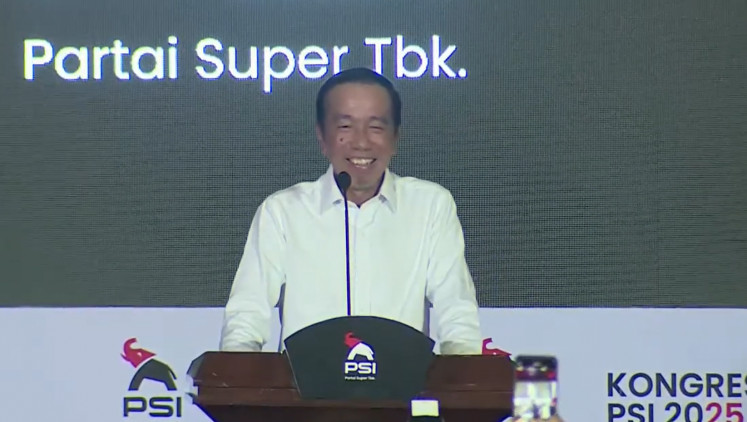Popular Reads
Top Results
Can't find what you're looking for?
View all search resultsPopular Reads
Top Results
Can't find what you're looking for?
View all search resultsPTA talks with Nigeria to start after June
Indonesia is expecting to start preferential trade agreement (PTA) talks with Nigeria in the second-half of this year with the hope of removing entrenched trade barriers and boosting bilateral trade to US$5 billion by 2015
Change text size
Gift Premium Articles
to Anyone
I
ndonesia is expecting to start preferential trade agreement (PTA) talks with Nigeria in the second-half of this year with the hope of removing entrenched trade barriers and boosting bilateral trade to US$5 billion by 2015.
Trade Minister Gita Wirjawan, who visited Nigeria last week, has signaled that there is enough common ground to seal the PTA with the West African nation, which could serve as an entry point to neighboring countries, such as Benin, Ghana, the Ivory Coast and Liberia.
African countries are increasingly important for Indonesia as Southeast Asia’s largest economy has worked on market diversification and looked for non-traditional export destinations in recent years.
“We aim to commence talks as soon as possible because trade potential is huge and we share similar interests in rebalancing trade,” Gita said in a text message over the weekend.
In addition to this, both the Indonesian and Nigerian economies are complementary, and investment by local firms in the country is already quite sizeable, according to Gita.
Bilateral trade between the two emerging economies reached US$2.1 billion in 2011 and during the January-October period last year it totaled $2.7 billion.
However, Indonesia accrued a deficit of $1.5 billion annually due to oil imports.
Nigeria has become a destination for investment from Indonesia, with around 11 local firms having already entered certain sectors such as food and beverage, petrochemicals and pharmaceuticals.
The Trade Ministry’s director general for national export development Gusmardi Bustami meanwhile said that the PTA would ease high import duties on around 200 products currently levied by Nigeria.
“We hope the pact can open greater access to food and beverage, textiles, footwear, pharmaceuticals, household products and other manufactured products. We can also provide preferential treatment on commodities necessary for us, such as cotton that we import from Nigeria,” he said.
At present, the Nigerian government levies a significant number of import duties on goods in order to spur its domestic industry amid concerns over high unemployment rates.
Indonesian exporters are eligible to obtain exemptions, but they could face lengthy procedures to utilize the facility.
In addition to the trade in goods, opportunities are available for trade in services, such as airplane maintenance, according to Gusmardi.
During a recent business forum in Nigeria, Garuda Maintenance Facility sealed a $60 million contract for airplane maintenance for the next five years.
Apart from the ample room for trade growth, Nigeria also offered investment opportunities for Indonesian firms in various fields, including plantations, textile manufacturing and agriculture-based industry, Gusmardi said.










